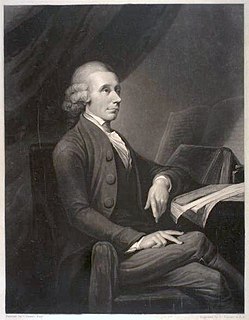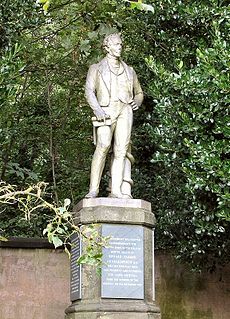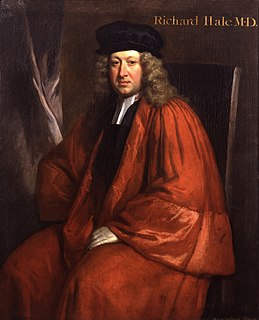Related Research Articles

William Augustus Guy was a British physician and medical statistician.
Herbert Davies (1818–1885) was an English physician.

The Theological Repository was a periodical founded and edited from 1769 to 1771 by the eighteenth-century British polymath Joseph Priestley. Although ostensibly committed to the open and rational inquiry of theological questions, the journal became a mouthpiece for Dissenting, particularly Unitarian and Arian, doctrines.
The Lady Margaret Professorship of Divinity is a senior professorship in Christ Church of the University of Oxford. The professorship was founded from the benefaction of Lady Margaret Beaufort (1443–1509), mother of Henry VII. Its holders were all priests until 2015, when Carol Harrison, a lay theologian, was appointed to the chair.

Richard Brompton, (1734-1783) was an English portrait painter.
Humphrey Brooke (1617–1693) was an English physician and political radical.
Noel Broxholme, M.D. (1686–1748), was an English physician.

Henry Revell Reynolds was an English physician.
Thomas Francis was an English academic and physician, Provost of The Queen's College, Oxford and President of the London College of Physicians.
Thomas Bonham M.D. was an English physician, now remembered for his involvement in Dr. Bonham's Case, of legal rather than medical significance.
Sir Thomas Burnet (1638–1704) was a Scottish physician, known for his appointment to successive British monarchs, and as an author in the tradition of Early Modern learned medicine.
John Edwards M.D. was an English academic, headmaster and physician. He was noted as a Royalist supporter in the University of Oxford.
John Stevenson Bushnan (1807–1884) was an English physician and medical writer.

Edward Parker Charlesworth (1783–1853) was an English physician, known as an innovator in psychiatric treatment.

Sir George Smith Gibbes M.D. (1771–1851) was an English physician and writer.
Richard Davies M.D. was an English physician.
James Hervey was an English physician and pioneer of smallpox vaccination in London.
John Betts (c.1623–1695) was an English physician. His later professional standing was affected by his religious beliefs, and then his non-juring attitude after the Glorious Revolution.

Richard Hale M.D. (1670–1728) was an English physician, elected a Fellow of the Royal Society in 1721.
References
- 1 2 3 Stephen, Leslie, ed. (1886). . Dictionary of National Biography . 6. London: Smith, Elder & Co.
- ↑ Andrews, Jonathan. "Bright, John". Oxford Dictionary of National Biography (online ed.). Oxford University Press. doi:10.1093/ref:odnb/3420.(Subscription or UK public library membership required.)